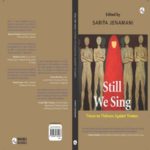Isn’t it astonishing that a few spoken words have such power to hurt us? Have you ever wondered why? At work and in our relationships, we can carry with us an anxiety that someone will be critical of us, which can shape our behaviour in ways we are not aware of. Many teachers leave the profession because they cannot cope with feedback, and several relationships break up because one person is constantly critical of the other. Parents lose that vital connection with their children through constant criticism.
Long-term criticism can damage our sense of self-worth and our confidence. Parents sometimes use criticism as a way of helping children improve but are not aware that too much of it can result in long-term damage. The person being criticised can feel like an open wound that never gets a chance to heal. Understanding what is going on in our thinking when we are criticised allows us to respond with wisdom.
We have all experienced the sudden pain that arises when we are criticised. We have no control over it. We react to this pain by getting angry, criticising the other person, withdrawing our affection, or thinking of different ways we can retaliate. This is the same in all human beings.
Our psychological sense of self, or the ‘Me’, experiences pain just like our physical body does and can feel hurt and threatened when criticised.
To understand what is going on, consider an example. If I am a surgeon and you criticise my ability as a surgeon, I will feel really hurt, but if you say I am a terrible dancer, I might just laugh and agree with you. The difference is that I have an image or opinion of myself as a good surgeon, but not as a good dancer. All our images become part of our identity, and when they are challenged, we feel hurt. This is because we are unaware of the many images of ourselves that we have accumulated or how they got there. The more images we have, the more the risk of getting hurt.
People who have experienced regular criticism can become sensitised to it and feel threatened even when no criticism was meant. They are more likely to misread situations, be reactive, and lash out at others, interpreting what was said or implied as a personal attack on them. The other person can feel misunderstood and get angry at what they regard as an unjustified reaction. This can negatively impact our relationships – at home and work.
None of this is right or wrong but a natural consequence of how our minds are wired to function. Understanding the mechanism behind the hurt, we feel when criticised may allow us to respond with intelligence.
Our minds constantly compare what we see in the world with what we regard as ‘normal’, which is our conditioning and all our past influences. Anything different creates a disturbance, and we automatically react – being critical of others is one such reaction.
However, it reveals far more about the person who is being critical than the person being criticised. It also subtly strengthens our own ego and brings subtle pleasure.
Observe this unconscious and automatic process of judging others and being critical of them yourself. If it is true, how are you going to respond? How are you going to change? Will you be more careful, using criticism sparingly and wisely? Will you pause before speaking and consider how it will be received?
The way we see ourselves is often different from how others see us, and criticism offers us an opportunity to learn about ourselves and grow as a person. We may pause, and ask if there is any truth in what is being said, say sorry, or make changes if needed. If we are wise, we could go further and actively welcome feedback from others to avoid making mistakes we may not be aware of and to keep our relationships healthy. If we are hurt by criticism, we could explore our various images of ourselves and ask how we acquired them, and that understanding may allow us to let most of them go. The ability to accept criticism with wisdom and grace is an important life skill we would all benefit from learning. Our wisdom may even prompt us to be grateful to others for having the courage to give us feedback and to help us grow.
The Criticism Module in the HumanWisdom App allows you to explore the subject more deeply. It is one of more than 60 modules you can explore to be the best version of yourself and meet life’s challenges with a pearl of calm wisdom.
You can find out more at Human Wisdom.



